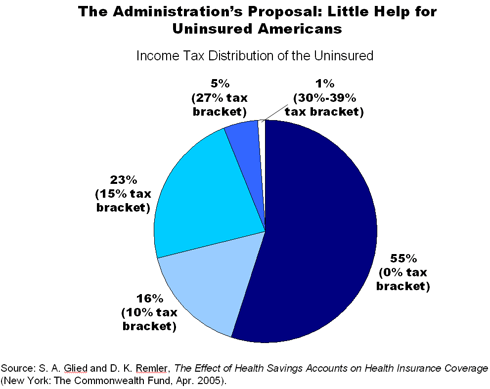While it is encouraging that President Bush made health care a theme of his January State of the Union address, his proposal to offer tax deductions to those who buy insurance would do little to cover the nation's nearly 47 million uninsured, said Commonwealth Fund president Karen Davis in a column posted on the Fund's Web site. Davis also said the Administration's plan falls far short of initiatives taking shape in states such as Massachusetts, California, and Pennsylvania.
Under the plan outlined by President Bush, individuals with health insurance—whether provided by employers or purchased on their own—would be entitled to a standard tax deduction. Those with job-based health insurance, however, would have their employer's contribution counted as taxable income.

Davis says the plan's biggest beneficiaries would be Americans who purchase coverage through the individual market, two-fifths of whom make more than $50,000 a year. Meanwhile, the deduction is unlikely to make a difference for families in low tax brackets—including most of the uninsured—and won't make insurance premiums affordable to these families.
The president's plan could have an unintended consequence as well: employers that now provide health benefits might stop offering them. This could especially be a problem, Davis notes, in parts of the country where premiums are highest, in industries that disproportionately cover older workers, and in the small business sector.